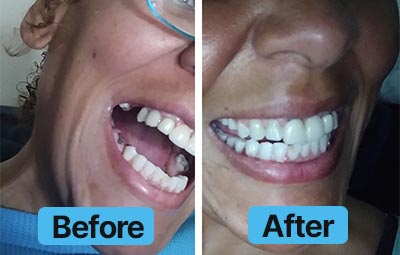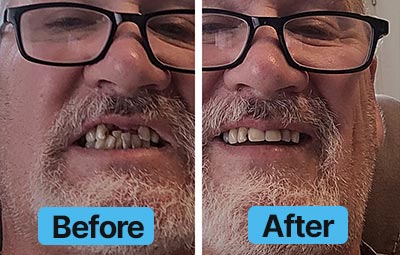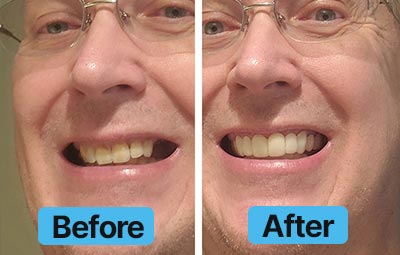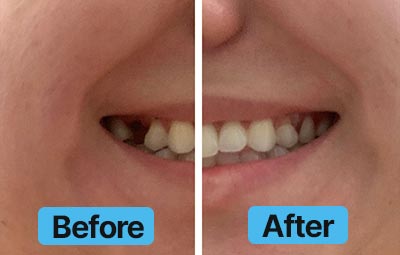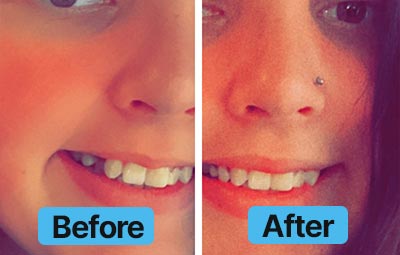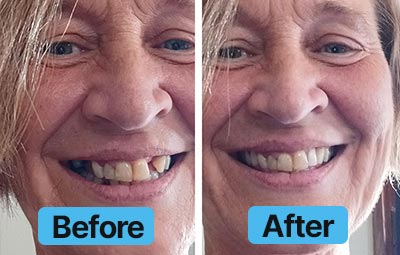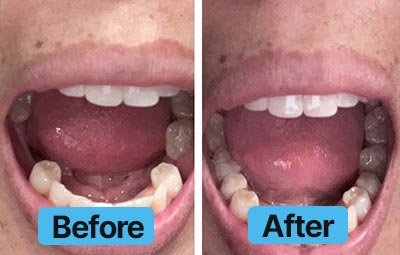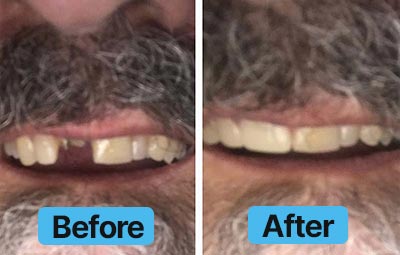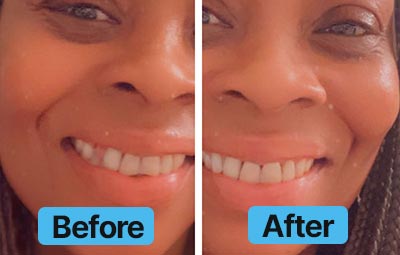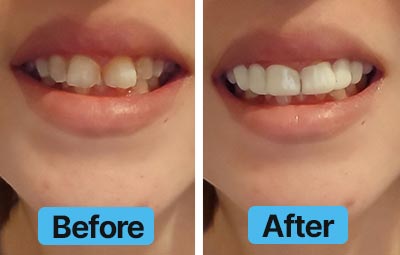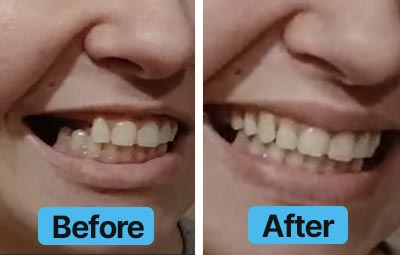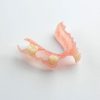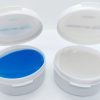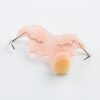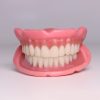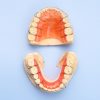Dentures: All You Need to Know About Partial and Full Dentures
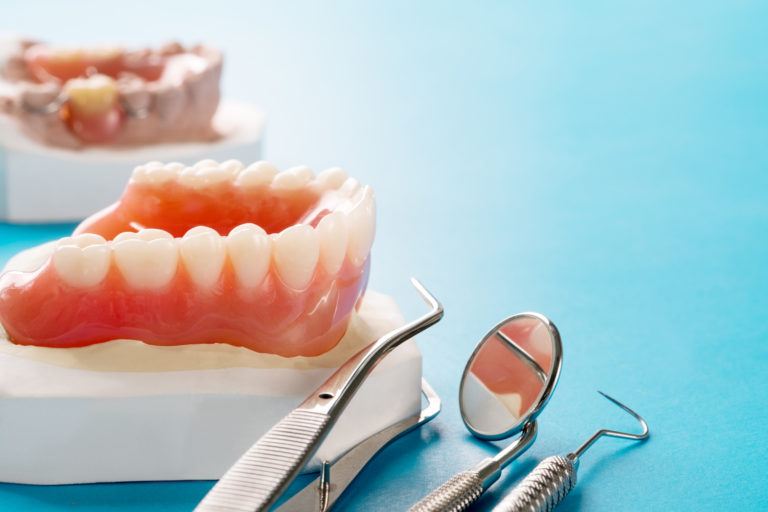
You might have come across someone who is missing a tooth and wondered how do they manage with their ailment? Well, when a person is missing certain teeth, they may experience a lot of problems. These problems include not being able to eat everything they like or have a confident smile. These issues can seriously affect morale and confidence, which is needed for everyday survival. When smiling makes you conscious or you cannot devour your favorite delicacy, it is time to do something. Do something to restore happiness and determination in yourself. This is where dentures come into play.
You might wonder what they are and how exactly do they work? Keep reading to get a rundown on everything there is to know about partial and full dentures. This can not only help you find answers but also benefit a friend or relative how might be facing this problem.
Dentures: What are they?
Dentures are nothing but artificial teeth and gums that are custom made to replace one’s missing or removed natural teeth. They are made by your dentist and can help you restore your appearance and other oral functions that are lost. Dentures come in two kinds; Complete and Partial.
Complete dentures are used when all of the person’s teeth go missing, replacing all of it. Whereas, a partial denture is ventured when only some of the teeth are missing, replacing that portion of it. No matter what kind you might require, dentures are made according to your teeth size and shape, visually matching to your existing teeth. This essentially means that you will look like your old self without compromising on absolutely nothing! Let us learn more about the various kinds of dentures.
Kinds of Dentures: Complete/ Full Dentures and Partial Dentures
Essentially, there are two varieties to this tooth replacement appliance. You may either need a Complete denture or Partial dentures.
Complete/ Full Dentures
Full dentures or otherwise also known as complete dentures are those that replace all of your natural teeth. They can be fitted on your top or bottom gum line and are held in place by suction or an oral adhesive. Then again, complete dentures are either “conventional” or “immediate”. Once the teeth have been removed, one has to wait for eight to twelve weeks until the conventional denture is ready to be placed in the mouth. This gives the bones and gums some healing time to be ready for the placement. Unlike conventional, immediate dentures are made in advance. As soon as the teeth are removed, they can be placed into the gums. Due to this, the wearer is not without teeth during the healing period. This acts as a disadvantage because gums tend to shrink during the healing process making the denture prone to many adjustments. Therefore, as opposed to immediate ones, conventional dentures are safer and an effective solution for the long run.
Although, these dentures are easily refitted than permanent dentures to accommodate for mouth changes while healing. An immediate denture can work in cases where a short term relief is sought working as a temporary measure.
Complete or full dentures are made of a plastic base that is colored to replicate your gum tissue and helps support a full set of porcelain teeth. Traditionally, these are held in the mouth by forming a seal with gums which keeps them intact. Another way to hold the dentures in the mouth is by attaching them to dental implants that are surgically placed in the jaws. A dental implant is a permanent fixture that is anchored to the jawbone and is used to replace any number of teeth. It includes the implant itself, a custom made crown, and a metal post which is usually titanium, all to replicate your natural teeth. But as complicated as this method sounds, it is also an expensive procedure to go through. Complete dentures are easy to remove to use on a requirement basis.
Partial dentures are used instead of other tooth replacement options. One opts for partial denture when the surrounding natural teeth are not strong enough to support any structures such as dental bridges or when one or more teeth are missing from their natural place.
Simply put, partial dentures are used when one or more teeth are missing from your natural setting and the surroundings are not strong enough to endure any heavy bridging. Just like any dentures, partial dentures are also fitted to the part of the gum line that they will sit on. However, they are fastened to the nearby natural teeth to keep them from falling out space.
As far as partial dentures are concerned, they are either made of plastic base or a metal framework. Essentially, it is a removable denture consisting of replacement teeth attached to a gum-colored plastic base and holds the denture into place. It is held in the mouth by using clasps and rests properly and accurately adjusted around the natural teeth. These are normally used as an emergency or temporary method of missing teeth, giving the gums and bones time to heal before a permanent solution is sought. Where the metal framework is used, the plastic base is absent and the traditional metal frame is the one holding the teeth intact. It is a traditional method due to its rigidity and strength of the metal.
In short, a bridge replaces the missing ones by placing crowns on the teeth on either side of the space and attaching the artificial teeth to them. Not to worry, this bridge is cemented in its place. In essence, the dentures fill the missing gap and make sure the remaining natural ones do not shift places. A precise partial denture is usually removable and have internal attachments rather than clasps that are attached to crowns. This kind is referred to as a more natural-looking appliance. They are not permanently fixed and can be taken out whenever cleaning is mandated. Recently, other options such as Valplast have been developed, in order to provide durable, flexible options for the patients.
How are dentures made?
When your teeth are either removed or lost, the empty socket starts to fill in with bones and the gum tissues heals and changes shape. This whole process takes about eight to twelve weeks, after which it reaches a stable shape. Once this period passes, the process of taking the impression begins. There are a series of impressions or molds taken of the oral tissues. These impressions form the basis of the models prepared for the patient’s mouth. The technician will start building the dentures around the models and make sure it fits the patient’s mouth through frequent fittings. With each step, proper fit is ensured along with proper bite, appearance, and establish desirable aesthetics. This will require more dentist visits until the dentures are complete. And even after the denture is delivered, visits are needed to be made for adjustment purposes.
Give dentures the care they need!
Regardless of what kind of dentures you may have, it is safe to say that all dentures need to be cleaned daily. Just like your regular teeth, they also need some attention in order to maintain their functionality to its full potential. You might wonder, that since dentures are made of artificial material, what would go wrong? Well, Bacteria, Plague, and Tartar, are something that will still find its way to your replacement teeth and harm them. Therefore, it becomes vital to take good care of them.
- Cleaning process: Once a day, take the dentures out of your mouth and run clean water over them to get rid of all food particles that may have been stuck between them. This will wash out the initial impurities from your teeth, gum line, and the area underneath. Use a denture brush for the next step and thoroughly brush them all over using a mild soap or denture cleaner. Word of caution: Do not use any detergent or soap that is not compatible with denture cleanings, such as regular toothpaste, electronic brushes, or other cleaners. These materials are too abrasive and seriously hamper the denture materials. After cleaning, make sure to rinse them well. Your gums and mouth also need cleaning while the dentures are out. Clean your gums and any natural teeth with a very soft and wet brush. A fluoridated toothpaste would be the right choice for these situations. In case a toothbrush feels too much, wrap a wet cloth around your finger and thoroughly clean the gums, covering all surfaces. Rinsing the mouth is very important to clean off plaque and reduce the risk of infection like Candidiasis.
- Preservation process: Before sleeping, make sure to remove your dentures to avoid any kind of damage or dislodging. This gives time for your gums to relax as well. The ideal stance would be placing them in warm, not hot, water fully submerged to keep them from drying out and getting worn out. Denture solution are a viable option when your dentures do not have any metal components as the denture solution can tarnish the metal, leading to serious trouble. Apart from these basics, you can also buy denture care products to tick off that extra care for your dental hygiene.
Effects of Dentures: On Speaking, Eating, Feeling and Looks
Appearance-wise, dentures, in fact, enhance the way you look and can be totally undetectable. At first, various adjustments are going to take place with frequent visits to the dentists. Your gums even might become sore from all the fittings, so it is important to take the help of your dentists through this process. However, the end result is always satisfactory. Eating with dentures will require some practice, but once you get used to the fittings, you would have aced that too. It is better to start with soft foods and chewing on both sides equally. At this stage, avoiding sticky or chewy food will be wise.
Speaking is also achieved through practice and will become easier with repetition. During exaggerated moments such as yawning or laughing, the dentures might get dislodged and need adjustment immediately. Production of excessive saliva will be prevalent but be rest assured that it will reduce back to normal with time.
How long do dentures last?
Properly cared dentures can last up to a minimum of five years. With time, the bone skinks, and the dentures become loose, but this varies from individual to individual. This calls for a dentist’s visit and adjusting to ensure proper fitting. The wrong fitting can lead to rapid bone shrinking. A denture to refit the surface of the denture to oral tissues can be an effective method for long-lasting dentures. Therefore, it depends on how well you care for your dentures and are aware of all the needed adjustments.
Now that you know all about dentures, it is time to invest in them without any delay. Wondering where to start from? Start with Dental Lab Direct.
At Dental Care Direct, our mission is simple, to provide a professionally made dental appliance at a price everyone can afford. Our expertise comes from decades of tried and true manufacturing. Custom-made night guards, partial dentures, retainers, smile enhancements, and all your dental requirements will be delivered at your doorstep. It is about time to skip the visit and buy directly from Dental Lab Direct. With our assortment of different styles of partial and full dentures to choose from, Dental Lab Direct will help you find the right solution to fix your smile and fit your budget. Our services include, assorted partial dentures, custom made night guards, laboratory-made sports mouth guards, teeth whitening solutions, durable crystal-clear orthodontic retainer, anti-snoring devices, clip-on smiles, and all dental accessories for you explore. Whether you are looking to protect your teeth or add a few or get that beautiful smile back on, Dental Lab Direct is here to help you improve your life without having to break a bank! Visit our website and sign up for the best dental solutions in town!
 60 DAY warranty on all custom-made products | 1,000+ 5 Star ★★★★★ Reviews
60 DAY warranty on all custom-made products | 1,000+ 5 Star ★★★★★ Reviews
